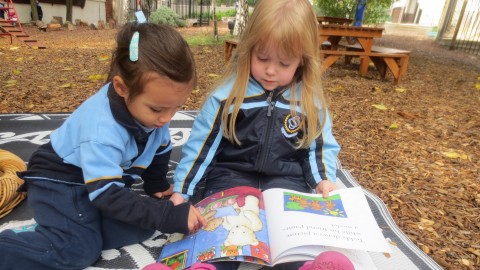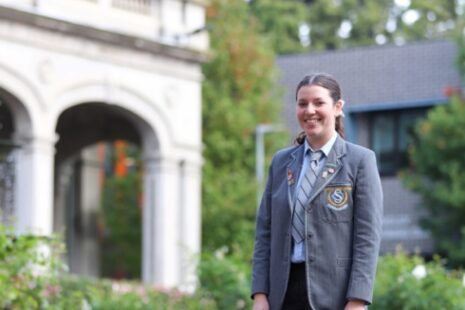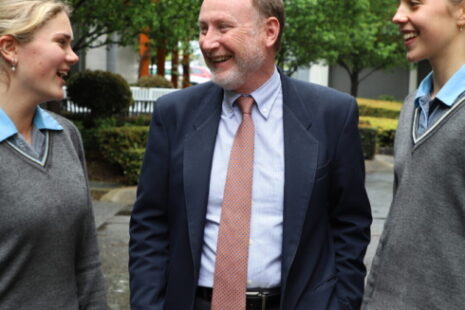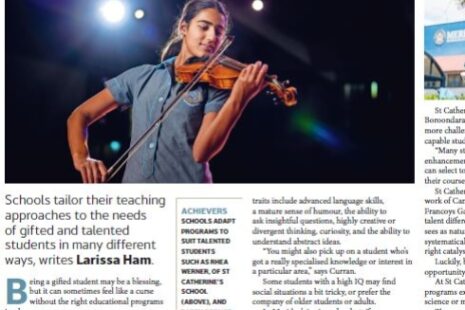The Gift of Story Telling

Stories encourage information retention and broaden understanding of the wider world.
‘Once upon a time’…four simple words that have the power to evoke vivid childhood memories and transport the listener into the world of imagination and limitless possibilities. Stories are an inherent part of our lives and a powerful tool for connecting with children.
Story telling evolved long before written language. It is the oldest form of communication and connects people and communities across all languages and serves as an authentic medium for preserving cultures, beliefs and values. Stories encourage information retention and broaden understanding of the wider world.
Children love listening to stories and research recognises the importance stories play in early brain development. In our increasingly busy lives it is vital we take the time to engage in meaningful interactions with children and expose them to a wide vocabulary. Listening to stories provides time to stop and relax without the stress of movement, lights and noise. Consistent engagement during the first five years is critical to shaping a child’s language, cognitive and socio-emotional skills.
There is concern at the increasing number of children across all socio-economic strata commencing school with poor oral language skills. This greatly impacts on their reading readiness and can continue to impact on their future learning. Exposure to a rich and diverse vocabulary has a direct link with children’s reading comprehension.
Our high tech world of screen dominated communication cannot deliver the personal connection of a live story teller. Story telling is interactive and establishes emotional bonds through connecting with another human being. It also provides numerous opportunities to introduce the listener to the light and shade of culturally rich language. The pathway to children’s comprehension of real life skills and connections is grown through daily interactions with meaningful adults, not technology.
Listening to stories helps enhance children’s listening skills and understand more. Instead of talking they have time to sit quietly and relax. Stories ignite their imagination as they visualise what they are hearing and immerse themselves in another world. Listening to stories encourages thinking skills, hypothesising, and problem solving. It also promotes an understanding of relationships. Children are able to see different perspectives and develop a sense of empathy. They have opportunities to think about how characters would feel and use their own experiences to think how they would feel in similar situations. It provides a safe way to explore strong emotions.
Every story teller brings their own interpretation and special magic to the stories they share. As children listen to stories they hear the rhythm and pattern of words. This contributes to language development and provides an awareness of form to assist children create their own stories. They become increasingly willing to share their thoughts and ideas, ask questions, accept different viewpoints and consider new ideas.
Stories can originate from many different sources including, real life experiences, provocations and observations, traditions and our imagination but as J.K. Rowling stated, “There’s always room for a story that can transport people to another place.”
Children also benefit from being exposed to a variety of story books. They gain an appreciation for books and an understanding of the purpose of print whilst also forging an ongoing enjoyment of books and reading skills.
Stories are a regular and popular part of the daily program in the Early Learning Centre at St Catherine’s. The story tellers vary, often it is a member of staff or parent, however the children are also eager participants. Stories are valued not only for their content but also for the relationships they strengthen within our educational community.
The Early Years Learning Framework (DEEWR 2009) outlines in Outcome 5: Children are effective communicators ‘who engage with a range of texts, obtaining meaning from them and sharing the enjoyment of language in a variety of ways’. To facilitate this educators in the Early Learning Centre ensure the children have access to a wide range of fiction and non-fiction books both in the classrooms and the Barbreck Library. They have opportunities to immerse themselves in the wonder and richness of ideas, illustrations and language. There is always time to enjoy and explore stories. Very often the children develop an attachment to particular stories and can be observed relating the stories to their peers or sitting quietly enjoying the illustrations. They frequently express elements of favorite stories through their play and in their own stories. Stories have the power to form connections both personally and with the wider world.
No matter whether a story is read or told it is a gift we can all share.





